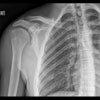
NEW YORK (Reuters Health), Apr 25 - Seven in 10 patients with suspected stable angina pectoris do not undergo appropriate cardiovascular testing and, as a result, have higher coronary event rates, according to a study in England.
Women, patients 65 years of age or older, people from South Asia, and the poor are the most likely to miss out on appropriate testing, Dr. Gene Feder at the University of Bristol and associates report in BMJ Online First, posted on April 25.
The investigators studied data for 10,634 consecutive patients with chest pain seen at one of six rapid access chest pain clinics in England between 1996 and 2002.
Based on clinical factors, an independent panel of physicians determined that 1,375 of these patients should have undergone angiography. However, only 420 procedures were performed during the subsequent three years.
In a multivariable analysis, angiography was less likely to be performed in patients older than 64 years compared with those younger than 50 years (hazard ratio 0.60); women compared with men (HR 0.42); south Asians compared with white people (HR 0.48); and patients in the highest quintile for material deprivation compared with more affluent patients (HR 0.66).
The hazard of nonfatal acute coronary syndrome or death from coronary heart disease within five years of the clinic visit was higher in the group that did not undergo an angiography (HR 1.71).
"Not receiving appropriate angiography was associated with a higher risk of coronary events in all groups," Feder's group reports.
They conclude: "Interventions based on clinical guidance that supports individualized management decisions might improve access and outcomes."
BMJ Online First 2008.
Last Updated: 2008-04-24 19:01:13 -0400 (Reuters Health)
Related Reading
CT angiography outperforms stress testing in diagnosing coronary artery disease, April 16, 2008
Copyright © 2008 Reuters Limited. All rights reserved. Republication or redistribution of Reuters content, including by framing or similar means, is expressly prohibited without the prior written consent of Reuters. Reuters shall not be liable for any errors or delays in the content, or for any actions taken in reliance thereon. Reuters and the Reuters sphere logo are registered trademarks and trademarks of the Reuters group of companies around the world.


















